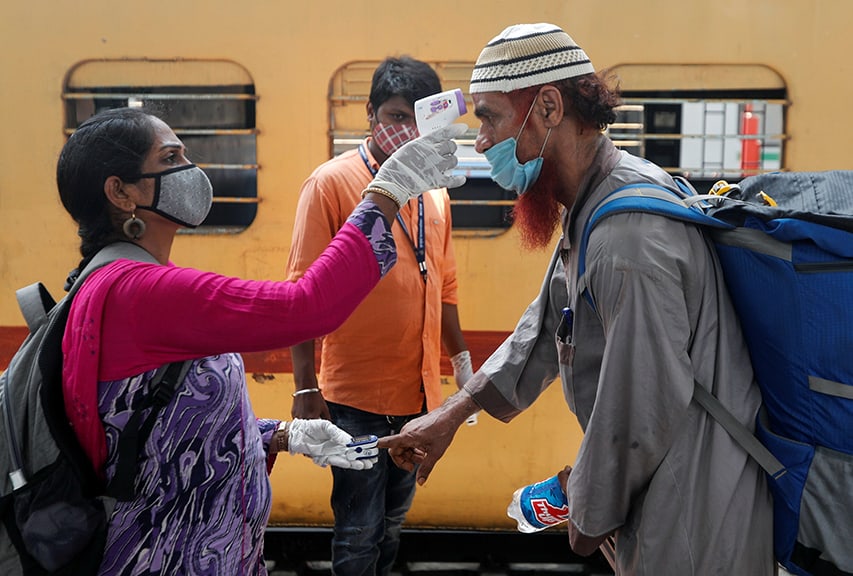
Ensuring equal access to health care, especially for the less fortunate, can only be achieved through a “renewed moral commitment by the countries with the greatest resources to the countries most in need,” Cardinal Peter Turkson said.
In a message marking World Health Day 2021, Cardinal Turkson, prefect of the Dicastery for Promoting Integral Human Development, said that health inequality is unfair but also is “preventable through strategies that aim to ensure equal access to health care, especially for the most vulnerable and marginalized groups.”
“It is desirable that universal health coverage be guaranteed to all individuals and all communities. This is an urgent goal to be achieved in order to build a fairer, healthier world, a better world, a world of peace that we dream and believe is still possible,” Cardinal Turkson wrote in the message released by the Vatican April 7.
Established in 1948, World Health Day not only marks the founding of the World Health Organization but also brings awareness to a particular global health issue.
According to the WHO’s website, the theme for 2021, “Building a fairer, healthier world for all,” is meant to highlight the need “to eliminate health inequalities,” especially during the COVID-19 pandemic.
In his message, Cardinal Turkson said the pandemic “has intensified long-standing social problems,” especially unequal access to health care.
“The impact of the pandemic has been harshest on the most vulnerable communities, who are most exposed to the disease with less chances of having access to quality health care services,” he said.
The pandemic, the cardinal explained, “has widened the large gap between countries that are more advantaged and those with less,” a gap that continues despite condemnation “on several occasions by various institutions.”
“There are unacceptable disparities and inequalities that deny health to a large part of the population in the ‘peripheries of the world,'” Cardinal Turkson wrote.
He also said an integral view of health that takes into account “physical, psychological, intellectual, social, cultural and spiritual dimensions of the person” can ensure the creation of “more equitable and more just health systems.”
“Acquiring this integral view allows us to understand that ensuring that everyone receives the necessary health care is an act of justice, that is, giving the person what is in his or her right,” he said.
Furthermore, the cardinal said, a healthier world can be achieved if humanity “rediscovers the sense of mutual interdependence.”
“In true fraternity, individualism and selfishness can be defeated by the reaffirmation that only the search for the good of all can lead to good for me,” he said. “The pandemic, in particular, has taught us that health is a common good so that by protecting one’s own health, the health of the other and of the entire community are protected as well.”
Cardinal Turkson also urged greater care for mental health, which is being “severely put to the test in this pandemic period,” especially for those on the front lines of the current health crisis.
“We must necessarily take urgent care of those who have taken care of us,” he said. “Those who govern as well as economic and health policymakers have a responsibility to ensure better working conditions for health care workers.”
– – –









